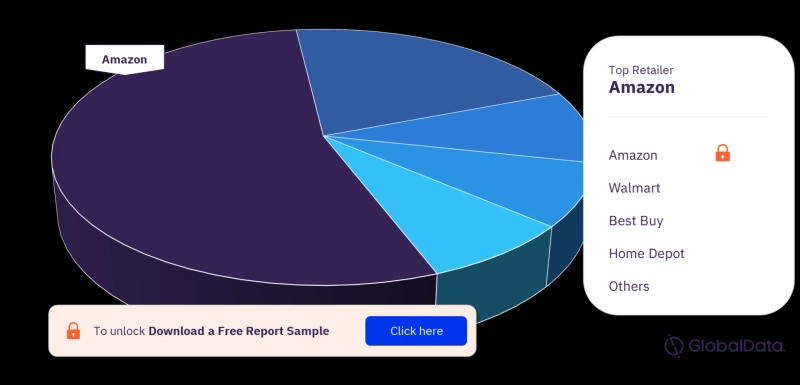The US online retail market thrives on convenience and trust. Consumers flock to online platforms for the ease of purchase and the vast selection of products available at their fingertips. However, this digital marketplace is not without its vulnerabilities. Data breaches, cyberattacks, and online fraud pose a significant threat to both retailers and consumers.
For more sector insights into the US online retail market report, download a free report sample
In this environment, robust cybersecurity measures become not just an option, but a critical necessity.
The High Stakes of Data Breaches:
For online retailers, a data breach can be devastating. The consequences are multifaceted:
Financial Losses: Data breaches can lead to hefty fines for non-compliance with data protection regulations. Additionally, stolen customer information can be used for fraudulent purchases, resulting in financial losses for the retailer.Reputational Damage: News of a data breach can severely damage a retailer's reputation. Consumers may lose trust in the platform's ability to safeguard their personal information. This loss of trust can translate to a significant decline in customer base and revenue.Erosion of Consumer Confidence: Cybersecurity breaches not only impact retailers but also shake consumer confidence in the entire online shopping ecosystem. Consumers may become hesitant to share their personal details online, hindering the overall growth of the e-commerce market.Protecting Customer Information:
Cybersecurity measures are crucial for safeguarding the vast amount of customer data collected by online retailers. This data includes:
Personal Information: Names, addresses, phone numbers, and email addresses are all valuable to cybercriminals who can use them for identity theft or targeted scams.Payment Information: Credit card details and other payment information are prime targets for online fraudsters. Retailers must implement secure payment gateways and data encryption to protect this sensitive information.Browsing History and Purchase Behavior: This data can be used to create targeted advertising campaigns or sold to third parties. Retailers have a responsibility to ensure the responsible use and secure storage of customer data.Building a Secure Online Shopping Experience:
Several steps can be taken to bolster cybersecurity in the US online retail market:
Investing in Cybersecurity Technologies: Retailers should invest in firewalls, intrusion detection systems, and data encryption to prevent unauthorized access to customer data.Regular Security Audits and Updates: Conducting regular security audits and implementing software updates helps identify vulnerabilities and patch them before they can be exploited by attackers.Employee Training: Educating employees about cyber threats and best practices for data protection is crucial. Employees should be aware of phishing attempts and social engineering tactics used by cybercriminals.Customer Awareness and Education: Retailers can play a role in educating consumers about online safety practices. This includes encouraging the use of strong passwords, being cautious of suspicious emails, and understanding online fraud tactics.Collaboration for a Secure Future:
Cybersecurity is a shared responsibility. Collaboration between online retailers, cybersecurity companies, and government agencies is essential for creating a secure online shopping environment. By working together, stakeholders can build robust defenses against cyber threats and protect the trust that underpins the US online retail market.
In conclusion, cybersecurity is not a luxury but a necessity for the continued success of the US online retail market. By prioritizing data security and implementing effective cybersecurity measures, online retailers can safeguard their businesses, protect their customers, and foster a thriving digital marketplace built on trust.


